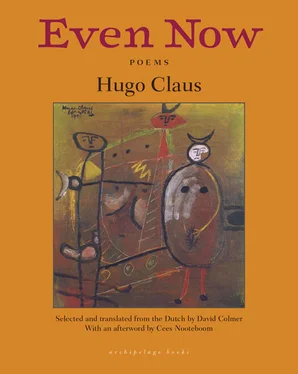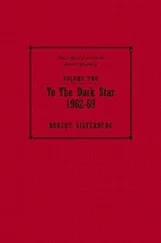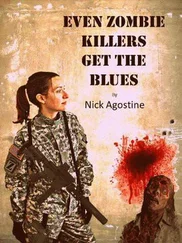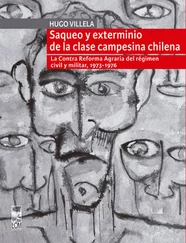of the one who tripped over his bag
of the blind man and the treed cat
of her name in the snow
The traces
of a life that couldn’t be a work of art
of preoccupied
and suddenly mottled hands
and a bruised pancreas that same week
The traces
of loss but no carping about that
even the ivy loses its suckers
The traces
of his father’s coat that was once a tent
for him and his broken tomahawk
The traces
of Mozartkugeln, being such a sweet tooth,
even for Milchrahmensahmenstrudel
The traces
of the fire-brigade siren and 5 Megatons
over Antwerp and the vomiting rats
one hundred dead boy scouts in the cellar
around the corner
The traces
of golden children’s tears: the resin of the cypress
of the tortoise shot to pieces
The traces
of the one who praised fragmentation
even though he clung to simplicity
him with his basketful of answers
The traces
of the dead bodies he climbed over
the mossy statues he gripped tight
the sheep with their false teeth
The traces
in haste, in innocence too
as incongruous as that sounds
(he was a poet for a few years
but don’t ask when)
The traces
of goodbye of course
goodbye to Glenfiddich, toothache, sunglasses
strangers sobbing in bed
The traces
of the one who wasn’t present enough here
and remained unreconciled
in compassion too
The traces
of what was once a poem
mostly a comparison
and now a corpse of words
to one day thaw
The traces
of the one who specialised
in the sheepishness of love
because he saw that expectation in her eyes
The traces
of his singing saw
of a begging tomcat
of the collapsing plastic skeleton
of the sea finally without a murmur
Autumn. Listen. Clicking. Do you hear that deep clattering?
It’s coming closer: in our clothes, in our hair.
We’re lousy with sound. What is this leprous muttering?
Child, it’s only the poets outside with their teeth chattering.
The closer the poets get to their dying,
The more furiously they groan at the stars.
In the morning mist that melts their metaphors,
The poets freeze in their recognizable sports coats.
Hear how feverishly they explain their approaching demise,
Struggling to render their rattling transparent,
To ensure that their widowed readers are moved to tears.
“Oh, our egos were way too obscure!” they moan.
“The times required it, as multi-interpretable as we ourselves!”
And look, they’re crawling out of their souls’ bandages,
Mouths full of wine and cheese and pleas for mercy,
For their prostatism, their plagiarism.
One foot in the grave, the poets suddenly discover
The calming miracles of gods, aphorisms and aspirins,
Of tenderness. For the first time his sweetheart
Can read with her lips something her sweetheart has written.
And before the poets, wasted winter apples
Scorned as too scrawny by the pickers,
Finally fall in November,
They want the neighbours to understand that fall
For posterity. In dairy words, ripening to mush like a pear.
Embittered, they keep listening for the crumpling
Of the newspaper that persists in misspelling their names,
Filling in their crossword puzzles
With anecdotes, anxiety and stumbling love.
But too late, too deaf, the poets realise
That what was dark and dull in their poems
Will not grow lighter through wear, with time,
But keeps on rotting. As unfathomable as ever:
Their homes, their words, the equator, the azure.
The sullen darkness remains as common as money
And as fleeting as death.
“But what about you? Yes, you! Didn’t you also worship
The scission, the seething, instead of the monument?
Searching for an epitaph in every motet?
Wringing an emblem out of every injury?
Didn’t you see your dented ego in every cappuccino?
—“It’s true. Upright yet, I dream of the literal.
Sure. Until the end, those embarrassments, radishes,
Paradises, roses, embellishments, tired comparisons. Up
To this sheet of paper, these corpses of letters.”
Adieu the poets write their whole lives long
And greying like lavender in November
They hang around, gangrene and gags and riddles,
Pathetically begging for mercy,
Like me for the wear on these eyes and ears
That loved you, that love you.
Ten Ways of Looking at P.B. Shelley
1
His body washed up on the beach
and lay there while the gold drained away
behind the mountains.
In his yellow trousers, in his white silk socks,
in Keats’s poems in his inside pocket,
the only moving things were worms.
O wild west wind,
breath of autumn’s being.
2
His face had been eaten away
by the creatures of the sea.
His spirit, which had eyes,
lips and nostrils,
saw the dreaming earth
and licked her,
breathing in the smells that destroy
and preserve at once.
3
All skin and bones, spastic.
(In pantomimes he always
played the witch.)
A shrill voice. A magpie’s eyes.
Girls at his knee.
And him just squawking
about angels of rain,
angels of lightning
that would come down tonight
on the blue planet.
4
He hated minced pork,
saints, devotion, the King.
But most of all he hated
one man and one woman
and their monogamous embrace.
Black rain, fiery hail
beat down on the fluttering locks
of the maenad wig
he’d put on.
5
There were many thorns, many bushes
into which he fell and bled.
But he always carried arsenic,
because who knows
if you will want to survive
the beauty of inflections?
Who knows if you wouldn’t rather
sink with no farewells
into the seaweed, untamed?
6
He once set fire to Mr. Laker,
the family butler. In Italy
he danced by the flames of a forest fire.
Later, in the shadow, grey
cold, after hours like icicles,
he whispered, “Hear, O hear,
the boughs of heaven and ocean,
tangled in each other.”
7
He ran screeching from his room,
he had seen, O, the fat women of Sussex
with eyes where the nipples should be.
Whereas usually in his wintry bed,
he saw a naked babe
rising from a purple sea.
O, lift me as a wave,
a leaf, a cloud.
8
For breakfast and lunch he ate bonbons.
Constipated from the laudanum.
Kidneys and bladder damaged.
His accents and rhythms
blow over the frozen earth.
Echoes of gods and blackbirds
and blasphemies.
9
He refused to wear woollen socks.
Butter made him gag.
Into Harriet, Mary, Clare and the rest,
he inserted a wine-soaked sponge
to prevent pregnancy.
On the edge of many circles
he wanted to banish himself.
He sank in his grand gestures,
the refusals.
10
When his fragments died,
he was interred as an ode and a pamphlet.
The Courier wrote: The infidel has drowned;
now he knows if there is a god or no.
He bounced the bawd of euphony
on his knee.
His heathenism, a remedy
when winter comes
Читать дальше












